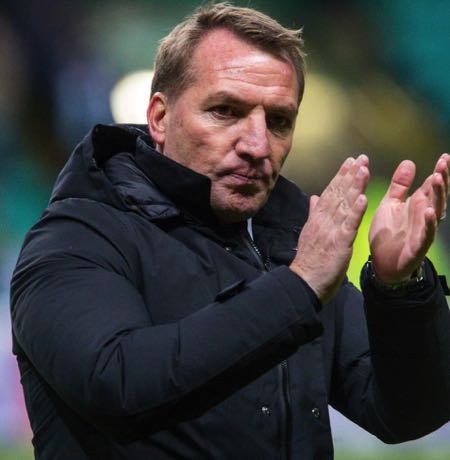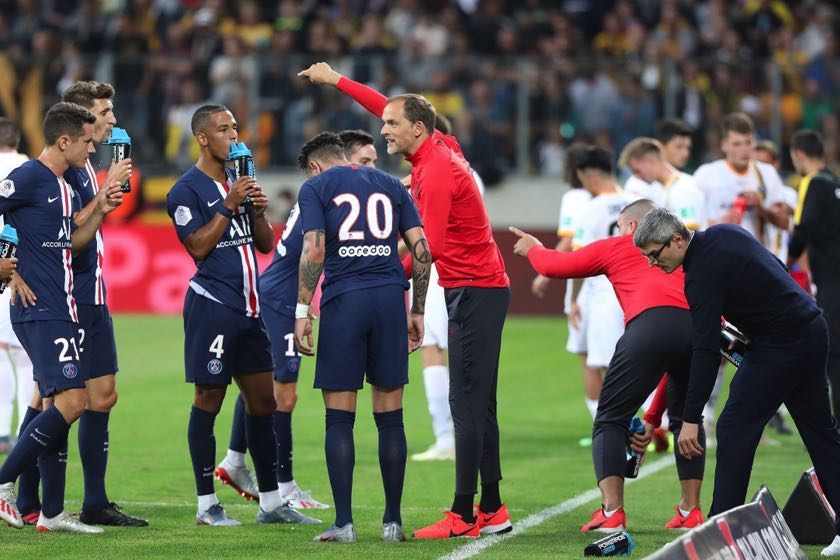A change is as good as a rest, the old saying goes. It’s a notion that has been cottoned onto by decision-makers at football clubs, with boards of directors much more trigger-happy when it comes to sacking their manager these days than ever before. And, perhaps, for good reason: if the phenomenon of the ‘new manager bounce’ is to be believed. But what is the new manager bounce, and do the stats actually back up the idea?
New Manager Bounce Explained

Out with the old, in with the new. When a football club sacks their manager, all of their ideas and tactics go through the exit door with them – leaving room for new strategies and football philosophies to come in. It’s generally a fresh start for the players at the club too: any festering disagreements and mutinies can be thrown out, with a new slate for everyone. It’s typically that – rather than some tactical wizardry – that facilitates the new manager bounce.
Listen out for interviews with players in the days and weeks after a head coach is employed. They will often speak with gushing reverence about their new leader – ‘the gaffer has brought fresh energy and ideas’ being one of the favourite cliches trotted out. But all relationships have a ‘honeymoon period’, which explains why the feeling of a new manager bounce can last for days, weeks, or never even start at all.
Is New Manager Bounce Real?

Of course, the proof of the pudding is in the eating. Is new manager bounce really a thing? The stats do support the concept, although it depends on how selective you are with your numbers. The Premier League released their own findings in 2021. They have claimed that the new manager bounce is a very real thing, revealing data taken from the start of the 2017/18 season to the end of the 2020/21 campaign.
There were 26 managerial changes in the English top-flight during that timeframe, and in 20 of them the new head coach had a higher points-per-game ratio than their predecessor – albeit over a small sample of their first five games in the hotseat.
In 9 of the 26, the new manager actually doubled the points-per-game rate recorded by their club compared to the individual they replaced. That data also suggests that 6/26 clubs were actually worse off when appointing a new manager – high enough of a percentage to act as a cautionary tale of handing out a P45 too prematurely.
Examples of the New Manager Bounce in Football
Below we list some of the more famous examples of the ‘New Manager Bounce’ in modern football.
Ole Gunnar Solskjaer

Although it’s been a while since he was employed by the club, Ole Gunnar Solskjaer’s early weeks at Manchester United were the perfect example of the new manager bounce. The Norwegian’s first game in charge in December 2018 was a 5-1 thrashing of Cardiff City – the first time that United had scored five or more goals in a Premier League in five years.
As if that wasn’t enough, the Red Devils won all of their opening five games with Solskjaer in charge – the first United boss since Sir Matt Busby to accomplish the feat. Not even Sir Alex Ferguson can lay claim to such a record.
Yet, by December 2019, United were in the doldrums thanks to a catalogue of poor results, their players were being booed and a large slice of the Old Trafford faithful were calling for Solskjaer to be sacked – his new manager bounce lasted much less than a year.
Thomas Tuchel
Thomas Tuchel can also be inducted into the new manager bounce hall of fame. His first game in charge of Chelsea took place on January 31, 2021 – within a matter of weeks, he’d rattled up a 14-game unbeaten run, which was the best start for a new boss in the Blues’ entire history. By May, Tuchel had guided Chelsea to Champions League glory – beating Man City in the final, while also taking the club to an FA Cup final.
Gary O’Neil
Gary O’Neil’s first weeks at Bournemouth also served as a reminder that the new manager bounce can impact ‘lesser’ clubs too. His predecessor, Scott Parker, oversaw a calamitous start to the 2022/23 season, with the Cherries losing their first three games of the campaign with a goal difference of -16.
O’Neil came in, turning a team seemingly destined for relegation around almost instantly. Bournemouth averaged the best part of a point-per-game in his early tenure, and by November they were in mid-table and clear of the relegation zone.
Graham Potter & Nathan Jones
Of course, for every success story we can also decry the myth of the new manager bounce – Graham Potter and Nathan Jones, at Chelsea and Southampton, respectively, proving that there’s no such thing given that they were sacked from their jobs in just a few months.
The Late Season New Manager Bounce

The data suggests that the new manager bounce is very much a real phenomenon, although whether it’s anything the new boss says and does – or whether the only way is up no matter who takes charge – that facilitates it remains to be seen. It’s generally accepted that the new manager bounce lasts for a few weeks or a couple of months at best – 6-8 games would be the premium timeframe.
If we know that results in those games generally improve, why don’t all clubs battling for a top four finish or promotion – or fighting to avoid relegation – simply sack their manager and let the wins roll in? Over the years, clubs have rolled the dice by sacking managers late in the campaign – some enjoying the fruits of the bounce, others less so. Leicester City fired Brendan Rodgers in April 2023 – giving his temporary successor, Dean Smith, just a handful of games to turn the ship around. He was unable to do it, and the Foxes were relegated.
But there was good news for Sunderland supporters in 2015. Dick Advocaat was given nine games to stave off relegation after replacing Gus Poyet, which he accomplished with a formline that will please fans of symmetry – W3 D3 L3. Sacking a manager can be an expensive business, with compensation needing to be paid. Doing so late in the season doesn’t always deliver the expected results either.

